Cuba's Strays
After Cuba the Dog flew from Cuba to Toronto, his new best friend, Ashley, talked to a couple of reporters, and suddenly Cuba was in the news. Newspaper and magazine articles told locals of the lucky little puppy from a roadside zoo near Holguin, Cuba who was so cute that Ashley fought to find a way to rescue him and ship him to her in Canada. It was a story with a happy ending.
But for every Ashley who visits Cuba, there are hundreds of tourists who go there, see pitiful dogs on the streets in distress and go home resigned to the hopelessness of it all. Of course it isn't just Cuba. In some third world countries the dogs have it even worse. But we're here to tell Cuba stories, and, regarding stray dogs on the street, there is much to talk about.
Rachel had been to Viñales on the north coast in the western part of Cuba. She didn't focus on a particular dog, but commented on their generally poor condition--ribs showing, skin in terrible condition. And they looked desperate and hopeless. Some say animals have no human emotions, but real animal lovers can see the stress in their faces.
Rachel suggested that perhaps tour guides should be working to help the strays because the sight of them is a downer for their clients, the tourists. Well, interestingly we had that idea come up before. Juan was a tour guide on a tour bus that ran from Havana to the Cuban city of Trinidad. At a rest stop, Peggy spotted a hungry stray dog and gave her lunch to her. She befriended Juan thinking that she might have his help in finding the dog later and in sending it to her in Massachusetts.
With a little detective work and the Internet, Nora found Juan and learned the number of the room in a Havana hotel where he stayed between bus trips. When she finally got him on the phone, he made it clear he couldn't be bothered helping a dog. Why had he been so friendly with Peggy, exchanging cards and offering to help? Well that was before tip time. After the tourists file off the bus and press a gratuity into his hands, Juan is focused on the next busload. Tour guides have enviable jobs because of their contact with foreigners and especially because their tips are in hard currencies, which will buy whatever you want in Cuba. I've heard stories of doctors who took jobs as taxi drivers to have access to hard currencies. Even the jobs of hotel chambermaids are enviable for the same reason.
Charlene and I saw the same attitude in Puerto Rico when we chartered a car to take us from San Jose to Ponce on the other side of the island. Nearing Ponce, we spotted an emaciated horse with hooves grown way too long--a pitiful picture of cruel neglect. It bothered Charlene so much she called our driver when we got back home. She wanted to connect with the owner or a rescuer, provide some food and try to save the poor creature. Well, it was the same thing as Juan in Cuba. After tip time, there is little willingness to get involved in rescuing an animal. And don't depend on tourist resistance to force a change. Nora writes, "The suffering seen by tourists affects only a few of them, not a large majority." Yes, unfortunately, if you are true animal lover, you're a rare bird.
And even though the government pushes tourism in Cuba, they have few resources for helping animals beyond collecting strays off the streets and killing them. Nora said, "You can't get permission to collect charity for animals without their bringing up other causes like sick children, AIDS, schools, and milk funds. They always bring up something seen as more important than the animals."
We keep coming back to a perennial truth. Massive spay-neuter campaigns are the only effective answer to the overpopulation of homeless animals. HSI is running a program for 15,000 operations with government help in Nepal. In Cuba, the animals' best hope is Nora and Aniplant and its group of volunteers.
Les Inglis
Friday, January 7, 2011
Subscribe to:
Post Comments (Atom)













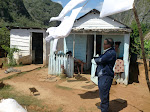




























































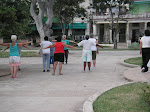
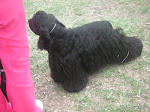
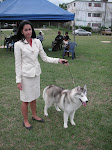


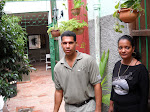





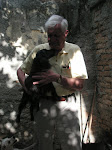



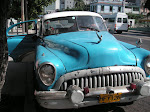

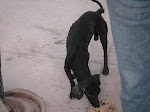


No comments:
Post a Comment